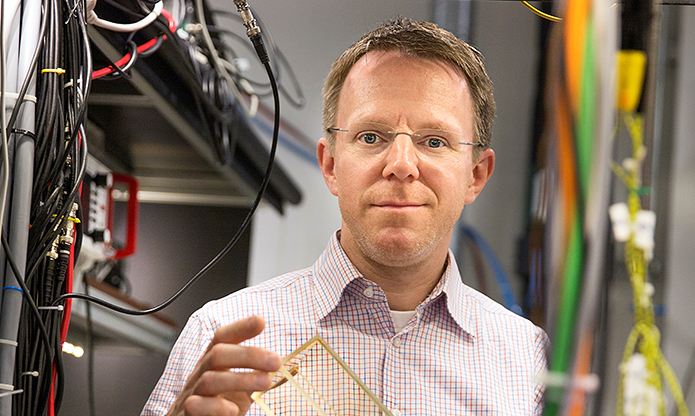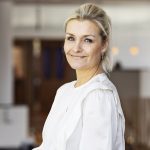The Novo Nordisk Foundation has awarded Jan Joachim Arlt a grant of DKK 14 million to investigate fundamental aspects of the next generation of quantum technologies.
Quantum technology has been a part of our daily lives for many years, although most people are not aware of this.
Revolutionary inventions such as the Global Positioning System (GPS) use atomic clocks based on quantum mechanics, and laser light relies on the same theoretical basis.
Quantum technology has thus already been through one revolution, and now we are in the midst of another that is expected to enable new and currently unknown technologies.
Jan Joachim Arlt, Associate Professor at the Department of Physics and Astronomy of Aarhus University, is helping to drive this development. With a NERD (New Exploratory Research and Discovery) grant of DKK 14 million from the Novo Nordisk Foundation, Jan Joachim Arlt will carry out research over the next 7 years to contribute to the basic understanding of quantum systems and how quantum mechanics can help to define technological development.
“The combination of the size and duration of the grant is absolutely fantastic because it means I can immerse myself in a basic science project that hopefully will expand the understanding of how quantum systems work so that others can use this knowledge to develop new technologies,” says Jan Joachim Arlt.
Studying ultracold gases
Jan Joachim Arlt’s research seeks to understand the characteristics and properties of quantum systems.
An example of such a quantum system is Bose-Einstein condensate, which is produced when boson gases are cooled to extremely low temperatures close to absolute zero (0°K).
Due to the quantum mechanical properties of the gas, the involved atoms lose their individual characteristics and instead enter into an overall quantum state that researchers can study and learn from.
In his research, Jan Joachim Arlt designs such ultracold quantum simulations and studies how changes in the systems affect their quantum properties.
“We use the well-known Bose-Einstein condensates to improve understanding of quantum systems that can be more easily applied,” he explains.
Leading to improved superconductors
Over the next 7 years, Jan Joachim Arlt will deepen the understanding of these systems, for which many fundamental questions remain unanswered. The next step will be to take the research further and develop new systems for making quantum simulations.
One problem is that researchers do not know how precisely quantum systems can be measured.
“We have gradually understood the basic quantum system, the atom, but when several atoms interact, we need to use some approximations about which we are not certain. The goal of this project is to create deeper understanding of the quantum systems of many atoms,” says Jan Joachim Arlt.
Improved understanding of quantum mechanical properties could be used to develop future technologies such as better superconductors that function because of quantum physics.
“Many of the important quantum mechanical processes take place in substances we do not fully understand. This means, for example, that we cannot easily determine how a superconductor works. But if we could, we might be able to develop superconductors that can operate at room temperature. Such superconductors would enable us, for example, to set up solar panels in the Sahara and then transport the electricity anywhere on Earth. Improving the understanding of quantum mechanical properties has this kind of potential,” says Jan Joachim Arlt.
Jan Joachim Arlt’s grant is one of the 10 NERD grants the Foundation has just awarded totalling slightly more than DKK 126 million for the 10 projects. Read more about the other grant recipients here.
About the NERD Programme
NERD aims to provide support for research projects in the natural sciences based on wild and unorthodox ideas that can provide new knowledge in technology or the natural sciences.
In NERD, researchers can apply to the Foundation for up to DKK 14 million over 7 years. The long-term support will enable researchers to explore new fields and pursue and realise ambitious and wild ideas.
Researchers at any career stage after obtaining the PhD degree are eligible to apply, although the applicant cannot have a grant portfolio as principal investigator exceeding an annual total of DKK 4.0 million.









